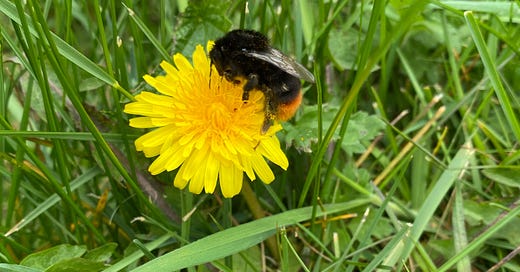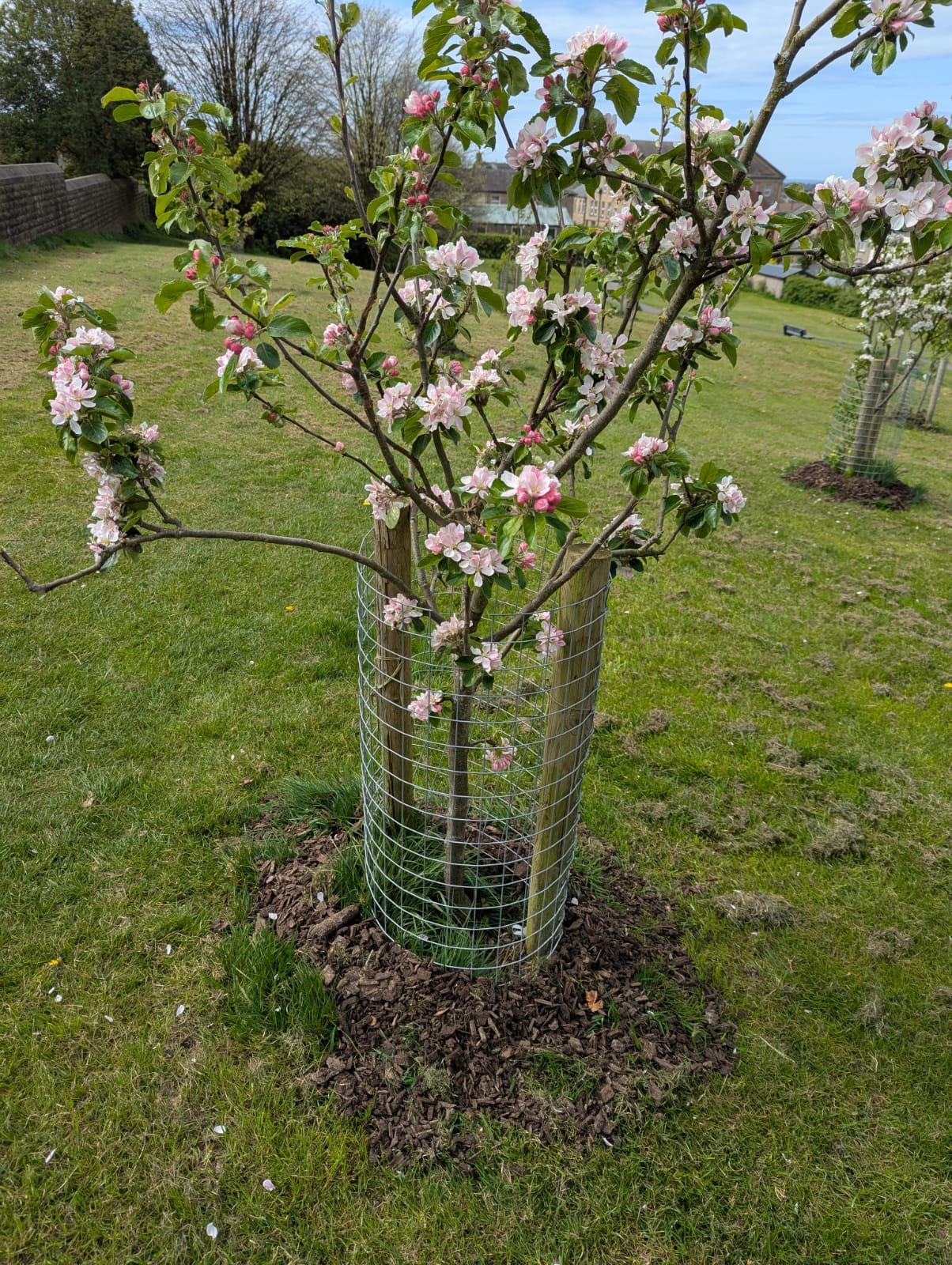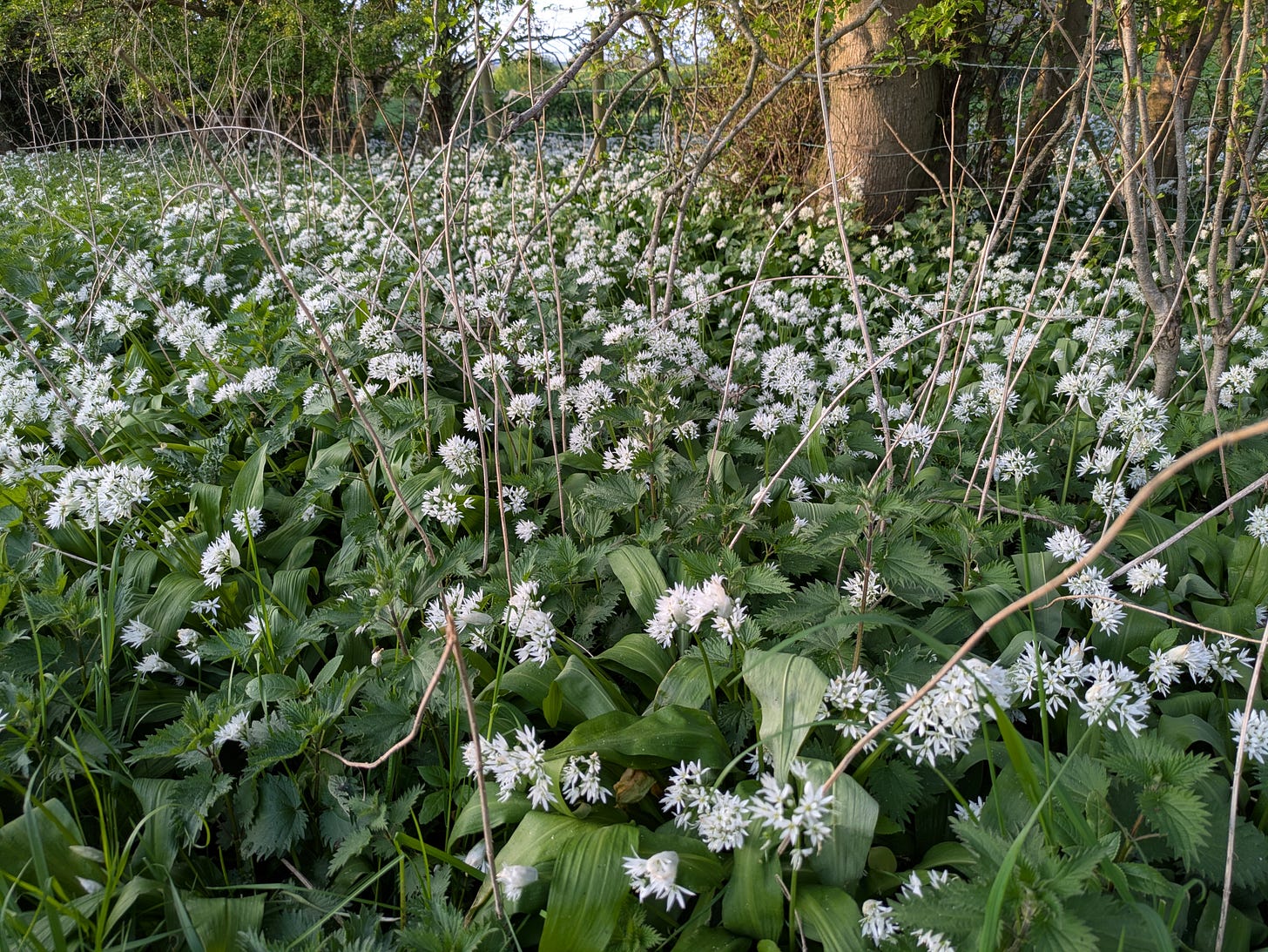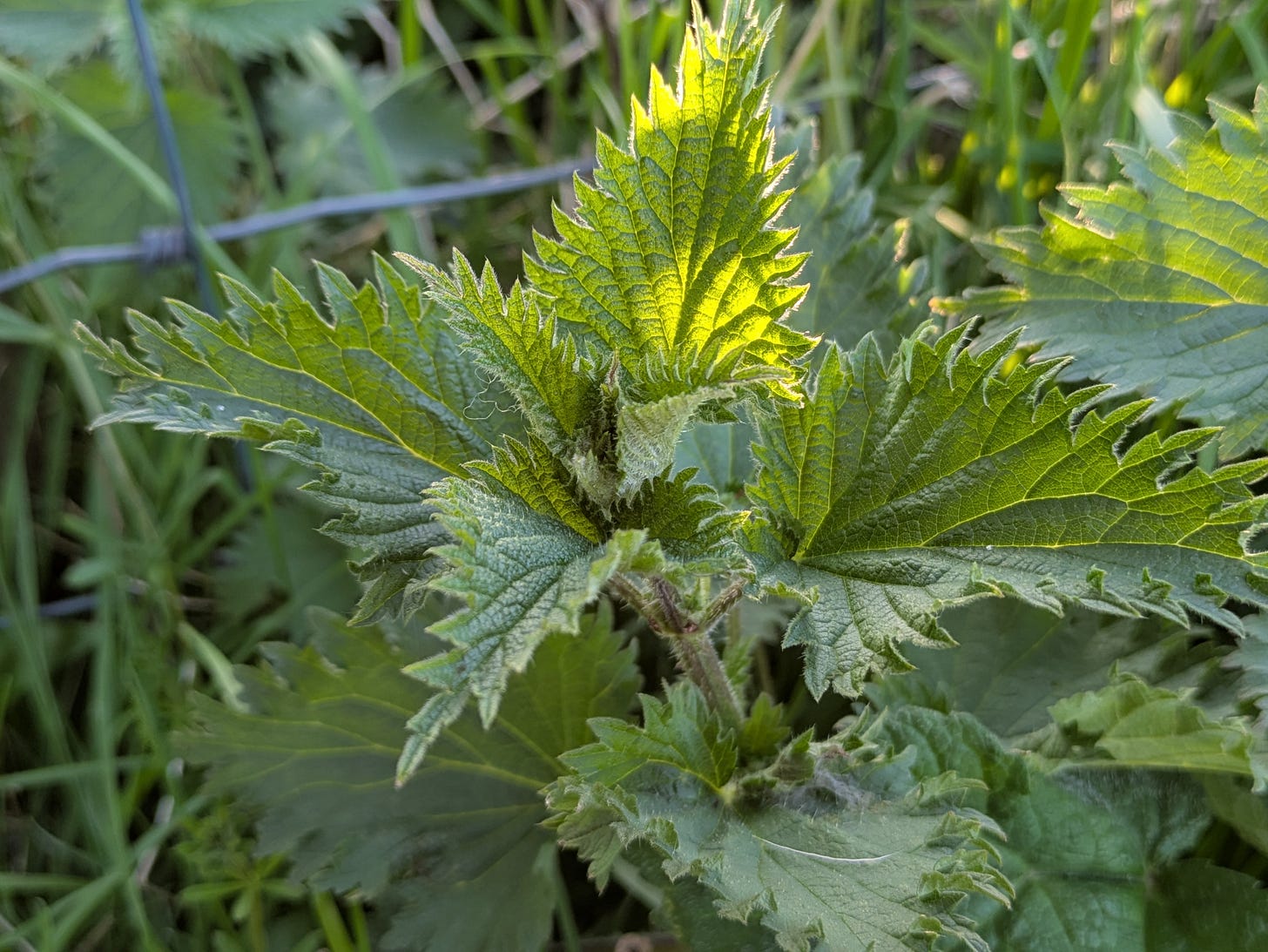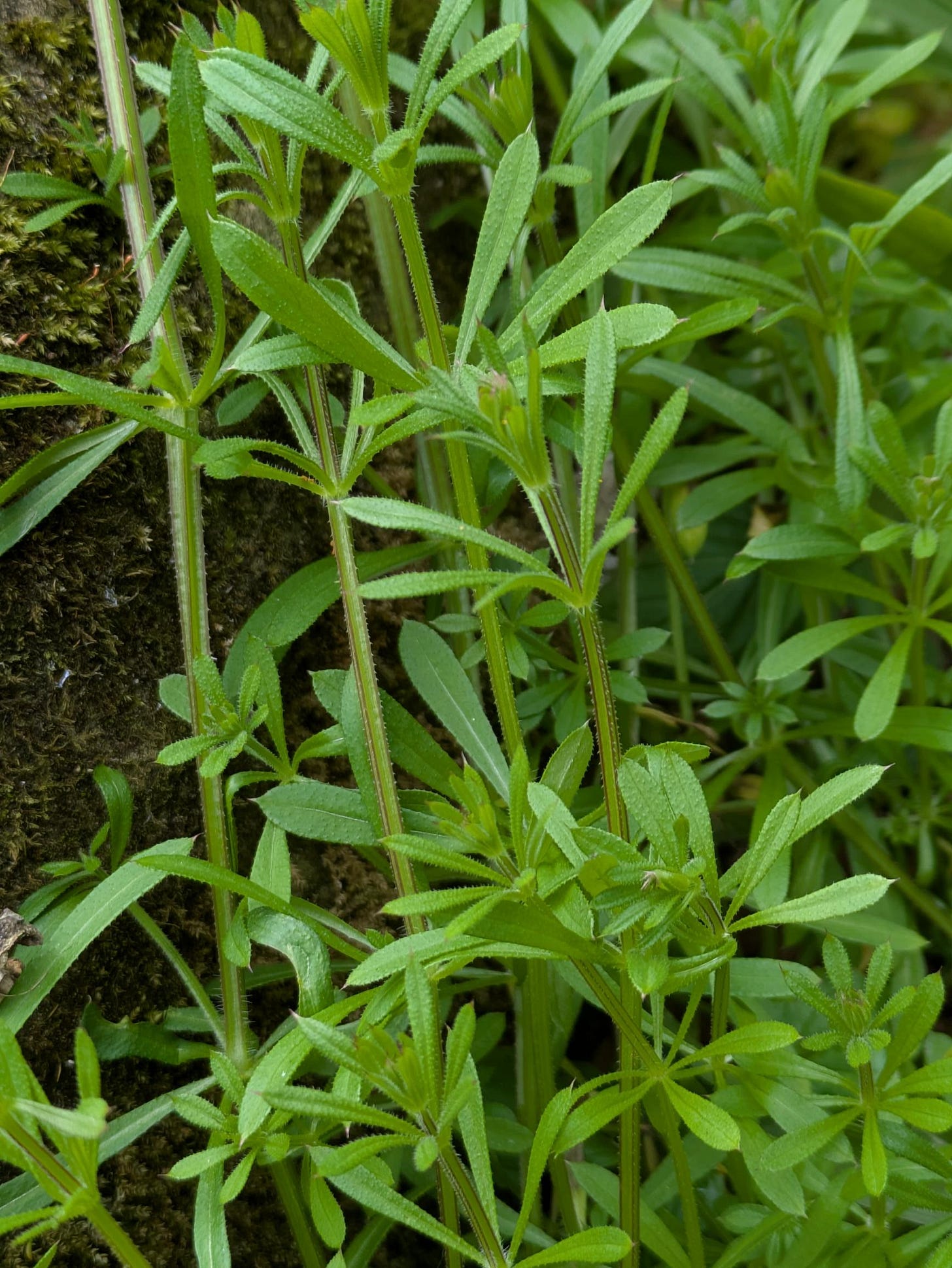Dandelions
Welcome children of the Spring, In your garbs of green and gold, Lifting up your sun-crowned heads On the verdant plain and wold. As a bright and joyous troop From the breast of earth ye came Fair and lovely are your cheeks, With sun-kisses all aflame. In the dusty streets and lanes, Where the lowly children play, There as gentle friends ye smile, Making brighter life’s highway Dewdrops and the morning sun, Weave your garments fair and bright, And we welcome you to-day As the children of the light. Children of the earth and sun. We are slow to understand All the richness of the gifts Flowing from our Father’s hand. Dandelions By Frances Ellen Watkins Harper
As we enter into May with longer days and rising temperatures we are seeing an abundance of life springing forth. The forecasted warm spell is expected to accelerate nature’s activity as migratory birds arrive from afar, butterflies emerge from their cocoons and ponds spring to life. In this issue the invitation is for us to take advantage of the warmer days by re-connecting with the wild and appreciating its abundance.
No Mow May
Since the 1930’s we seen a 97% loss of our flower-rich meadows, vital habitats for our pollinators such as bees and butterflies. The campaign to refrain from mowing our lawns for the month of May provides an opportunity for us contribute to the restoration of what we are losing and increase the biodiversity within our gardens and green spaces we have control over. A healthy lawn with some longer grass and wildflowers also helps to tackle pollution and can even lock away carbon below the ground. With more than 20 million gardens in the UK, even the smallest grassy areas can add up and deliver enormous gains for nature, people and the climate. It can also provide us with that wonderful opportunity to re-connect with nature as we see wild flowers emerge and attract new fauna into our gardens.
For more information on how to get involved follow this link to Plantlife’s NoMowMay resource pages
New Planning and Infrastructure Bill
A Wilder Future helps everyone benefit from and enjoy wildlife near them. However, parts of the UK Government's new Planning and Infrastructure Bill currently threaten nature's recovery in England. This isn’t good for wildlife, or people.
Don’t let this Bill become law without the safeguards needed to protect nature, through the Wildlife Trusts letter campaign
Wild Food
In previous newsletters we have talked about foraging, one of the most wonderful ways of re-connecting with the land which sustains us. As we enter into late Spring we are already seeing an abundance of food on offer - last month we saw wild garlic Alium Ursinum (and also known as ramsons, cowleek, buckrams, broad-leaved garlic, wood garlic, or bear leek) push up their delicious green shoots, followed now by their fragrant white flowers forming a stunning spectacle by the side of streams and in woodlands. All parts of Wild garlic are potentially edible - younger leaves are great for salads and wild pesto whilst older leaves can be cooked very much like spinach and added to soups and stews. Flowers and flower buds make a lovely addition to a spring salad and seed heads can be pickled. Whilst the bulbs are also edible they should not be uprooted as they can damage the plant and prevent it from growing the following year.
Favourite Wild Garlic Recipe
LEG member Clare Hyde has recommended the following Wild Garlic Tarte Soleil as a delicious party-piece that will impress any of your guests.
Warning: Poisonous Look-a-like
Ensure when you are picking wild garlic leaves, do this carefully picking one leaf at a time and inspecting each one. Often the poisonous Lords and Ladies Arum maculatum with a similar-looking leaf grows amongst wild garlic and consuming it can have disasterous consequences.
Other wild foods for May
As we allow a little more wildness into our gardens this May there are opportunities to appreciate some of the plants that we might otherwise be inclined to pull up. The Common Nettle Urtica Dioica is appearing in abundance at the moment and, rich in vitamin C and Iron, these are good to pick when the shoots are young before flowering. They are great for soups and as a tasty alternative to spinach. A tip for picking is to use either rubber gloves or kitchen tongs and know that once cooked the formic acid, the irritant of stings, disappears. Once they have flowered they become tough and start to form calcium oxalate crystals which can cause kidney irritation.
And one final mention is that of Cleavers Galium Aparine (also known as Goosegrass, Catchweed or Sticky Willy). Characterised by its long stems with sticky stems and seeds it too is often seen in a less than positive light by the gardener. However, long-regarded in herbal medicine for its alleged heath benefits, it also has numerous culinary uses. It can be cooked and eaten as a green vegetable when young, and soaked in cold water and left in the fridge overnight provides a refreshing drink, with a pleasant cucumber taste.
Foraging Guidelines
If you are new to foraging then please there are some some simple rules to always have in your mind to stay safe, keep within the law and to respect the planet. Both The Woodland Trust and Wild Food UK provide useful guidelines.
LEG AGM and Social Saturday - 10th May
Our next AGM will be held at Little Town Dairy at 10am. We will start with a short AGM to elect our new steering committee. We are looking for a new chair (or two co-chairs) who can chair the meetings and also someone to write the newsletters. Whether or not you have attended one of our meetings before, if you would like to get involved in one of our upcoming projects or contribute to the direction of LEG we would love you to come along and join in the fun.
Active Sunday
Sunday 18th May - details to follow.
Great Big Green Week - 7-15th June
We are looking to have a pop-up pond on 7th June, encourage shops to have a green display theme and hold a talk and or film night in town. Get involved and help us plan.
Keep in Touch
A reminder that you can …
And we look forward to connecting at our next Social Saturday and Active Sundays. Details will be shared via our LEG WhatsApp
Supporting LEG
For time and other reasons, we are aware that not all can join our activities, so we have made it easier to support us with a donation. Simply use the QR code below and you will be taken to our Stripe page where you can donate. All gratefully received, no matter how small.
Thank You
Thanks for reading our LEG Newsletter!

